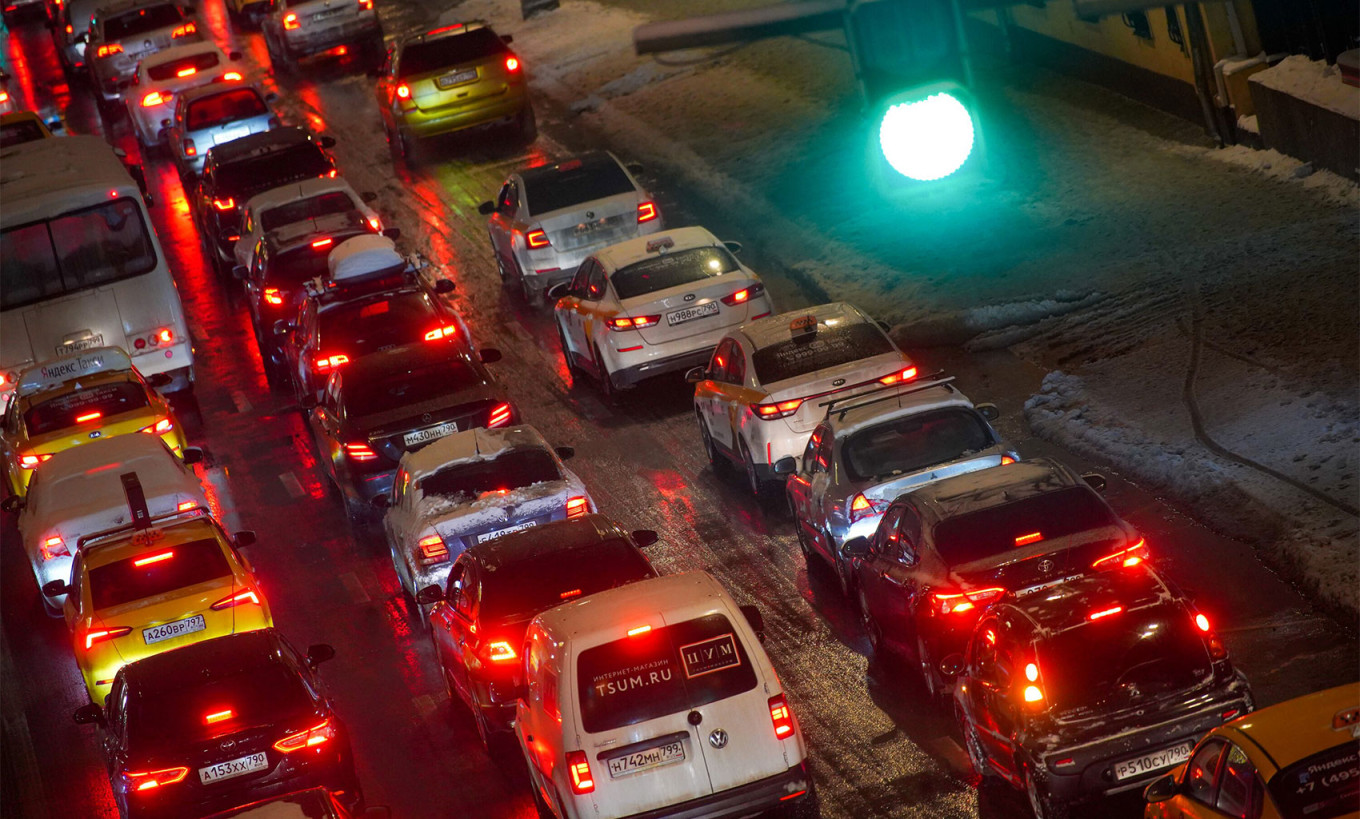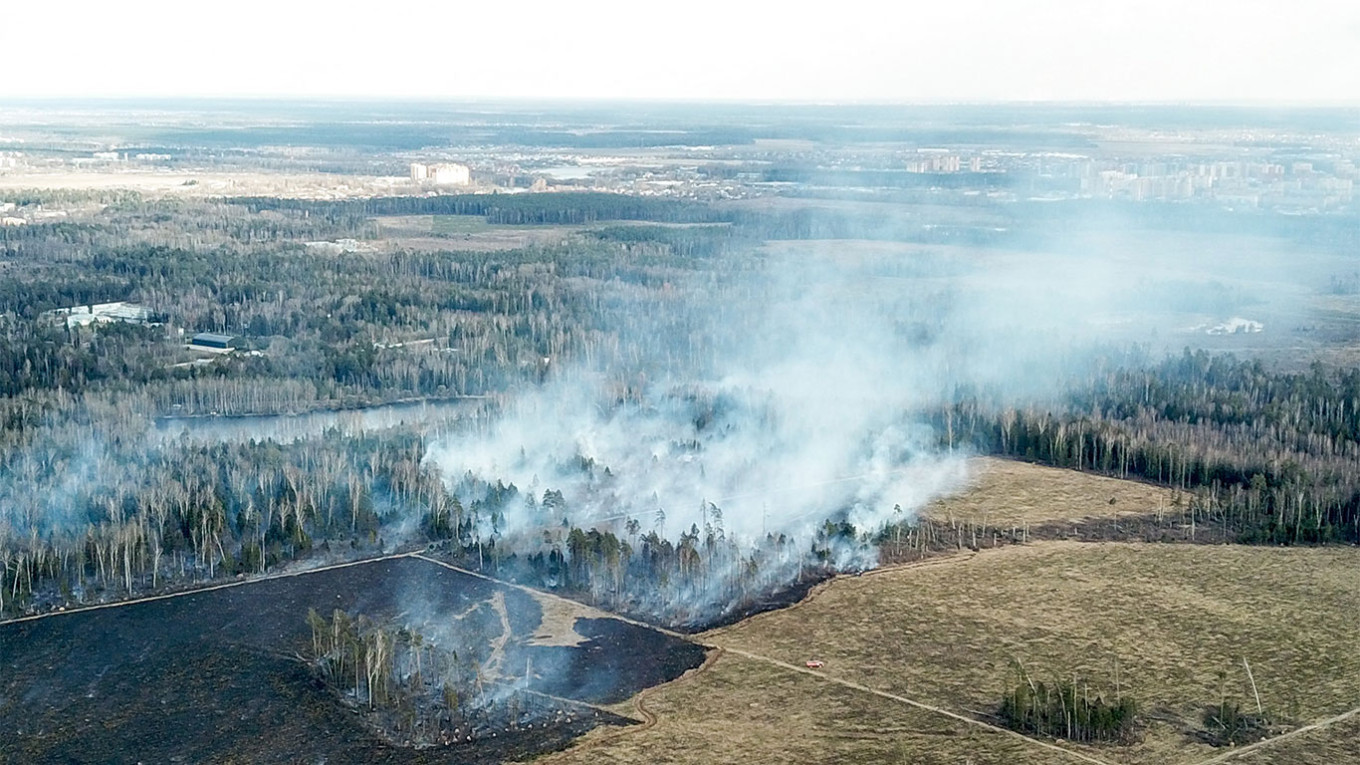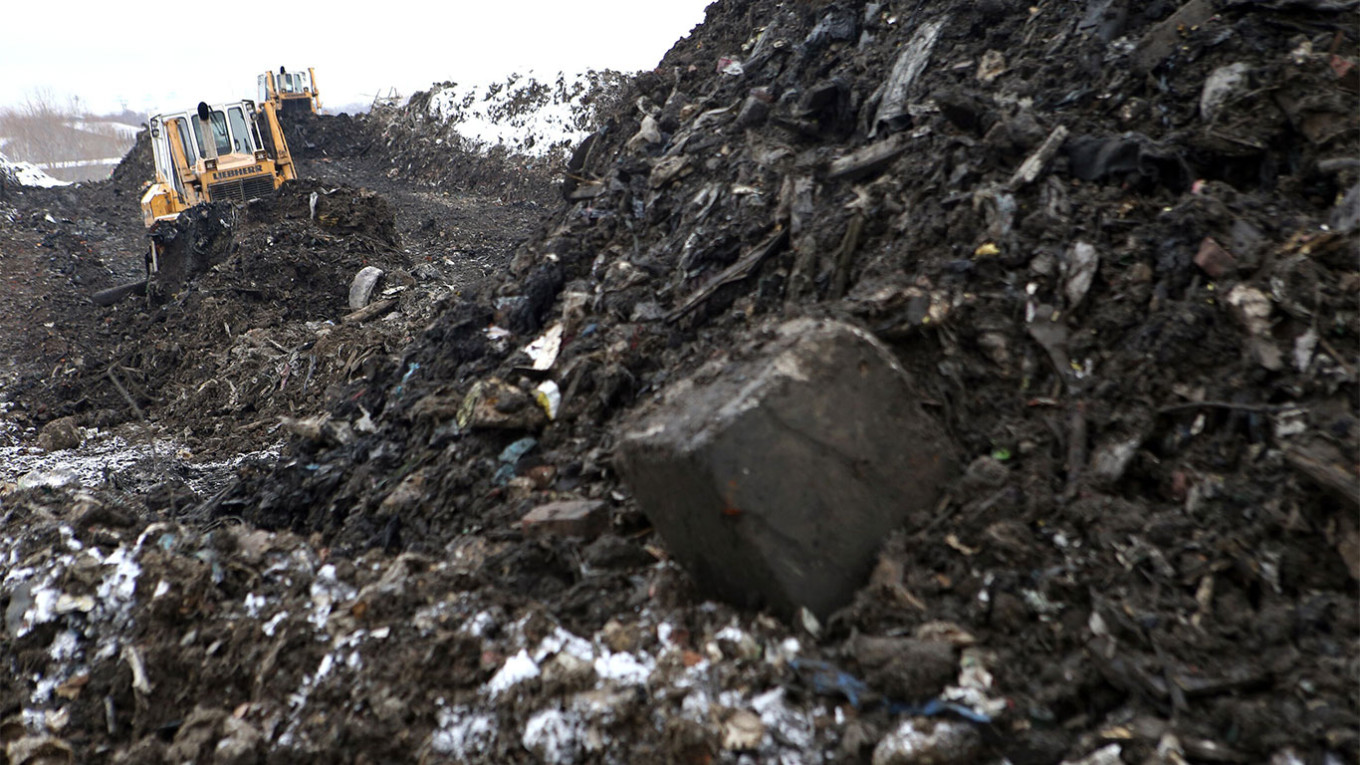In the two years since the Kremlin invaded Ukraine, Russia has experienced a backsliding in several key areas connected to environmental protection and the fight against climate change. This not only poses risks to public health but could also undermine global efforts to address the climate crisis.
While many of Russia’s environmental policies and related state agencies remain in place, the impact of Western sanctions and a sweeping crackdown on civil society at home have curtailed the state’s ability to protect the environment.
Climate goals in doubt
As one of the world’s top polluters, Russia has long been criticized for insufficient action on addressing climate change. However, Western sanctions have further hindered progress on decarbonizing projects.
Given Russia’s reliance on imported technologies, ranging from 30% to 55% across various sectors targeted for decarbonization, experts warn that under the current sanctions regime, the government will struggle to enact several key climate initiatives.
Greenhouse gas emission cuts in Russia by the middle of the 21st century could be only half of what was initially planned before the West imposed sanctions in response to the invasion of Ukraine, according to researchers at the Russian Academy of Sciences.
However, Moscow insists that it is still pursuing a sound climate policy, maintaining its goal of achieving net zero greenhouse gas emissions by 2060, while also trying to assert its role in the global fight against climate change at international talks.
Earlier this week, President Vladimir Putin said that humanity must unite together in efforts to address climate change, calling the crisis a primary concern for Russia.

Emission standards retreat
In a bid to keep Russia’s sanctions-battered automotive industry afloat, the government temporarily allowed manufacturers to produce vehicles that meet the emission standard of “ecological class 0” — which is roughly equivalent to the Euro 1 standard introduced by the EU in 1992.
The change, implemented in May 2022, allowed car manufacturers to continue operating factories that would otherwise have been forced to shut down due to their inability to meet previously enforced Euro 5 standards without imported vehicle components.
But the move came at a cost. The lower emission standards meant that new cars could release high levels of nitrogen oxide, which contributes to smog production and potentially causes respiratory problems for people exposed to it.
The Russian government has since required car manufacturers to produce vehicles that meet at least the Euro 3 emission standard, a change that took effect this month. However, it remains unclear how many environmentally obsolete cars have hit Russian roads during the spell of relaxed regulations.

Drones for forests
Amid growing threats of Ukrainian drone attacks on Russian territory, authorities in dozens of regions had banned drone usage by late 2022. However, the implications of this ban extend beyond security concerns.
Restrictions on drone use could hinder forest conservation efforts, a forestry expert told The Moscow Times on condition of anonymity, including the detection and prevention of illegal logging, waste disposal and wildfires, as drones are commonly used for surveillance in these areas.

Record waste
Russian enterprises produced a record 9 billion tons of industrial waste in the year that Moscow launched its invasion of Ukraine, according to the FinExpertiza consulting group.
The 6.7% year-on-year increase marks the highest level of industrial waste production since data first started being collected in 2002. Experts link the waste growth to a boom in industrial production in the country’s defense sector as the Kremlin militarizes the economy to build more tanks, missiles, guns and ammo.
Russian defense enterprises are also a significant source of water, land and air pollution, though the precise impact of the country’s military production boom on the environment remains unclear given the secrecy surrounding the sector.
![Greenpeace activists unfurl a banner with a message reading "Russia is not a [radioactive waste] dumping ground!" in the port of Ust-Luga on Russia's coast of the Gulf of Finland in 2020. Peter Kovalev / TASS](/wp-content/uploads/2024/02/5-ways-the-ukraine-war-hindered-environmental-progress-in-russia-3.jpg)
Banned eco-defenders
Over the past year, the Kremlin effectively dismantled those groups that had been the loudest independent voices on environmental issues and had the largest public support base.
Russia authorities labeled prominent international NGOs such as Bellona, Greenpeace and the World Wildlife Fund “undesirable.” All had been present in the country since the Soviet collapse. This designation effectively banned them from working in Russia and made any form of cooperation with them a crime.
While some environmental NGOs still operate in the country, including Kremlin-backed groups, the future of civil society — and its ability to independently and effectively advocate for environmental causes — remains in doubt.
… we have a small favor to ask.
As you may have heard, The Moscow Times, an independent news source for over 30 years, has been unjustly branded as a “foreign agent” by the Russian government. This blatant attempt to silence our voice is a direct assault on the integrity of journalism and the values we hold dear.
We, the journalists of The Moscow Times, refuse to be silenced. Our commitment to providing accurate and unbiased reporting on Russia remains unshaken. But we need your help to continue our critical mission.
It’s quick to set up, and you can be confident that you’re making a significant impact every month by supporting open, independent journalism. Thank you.